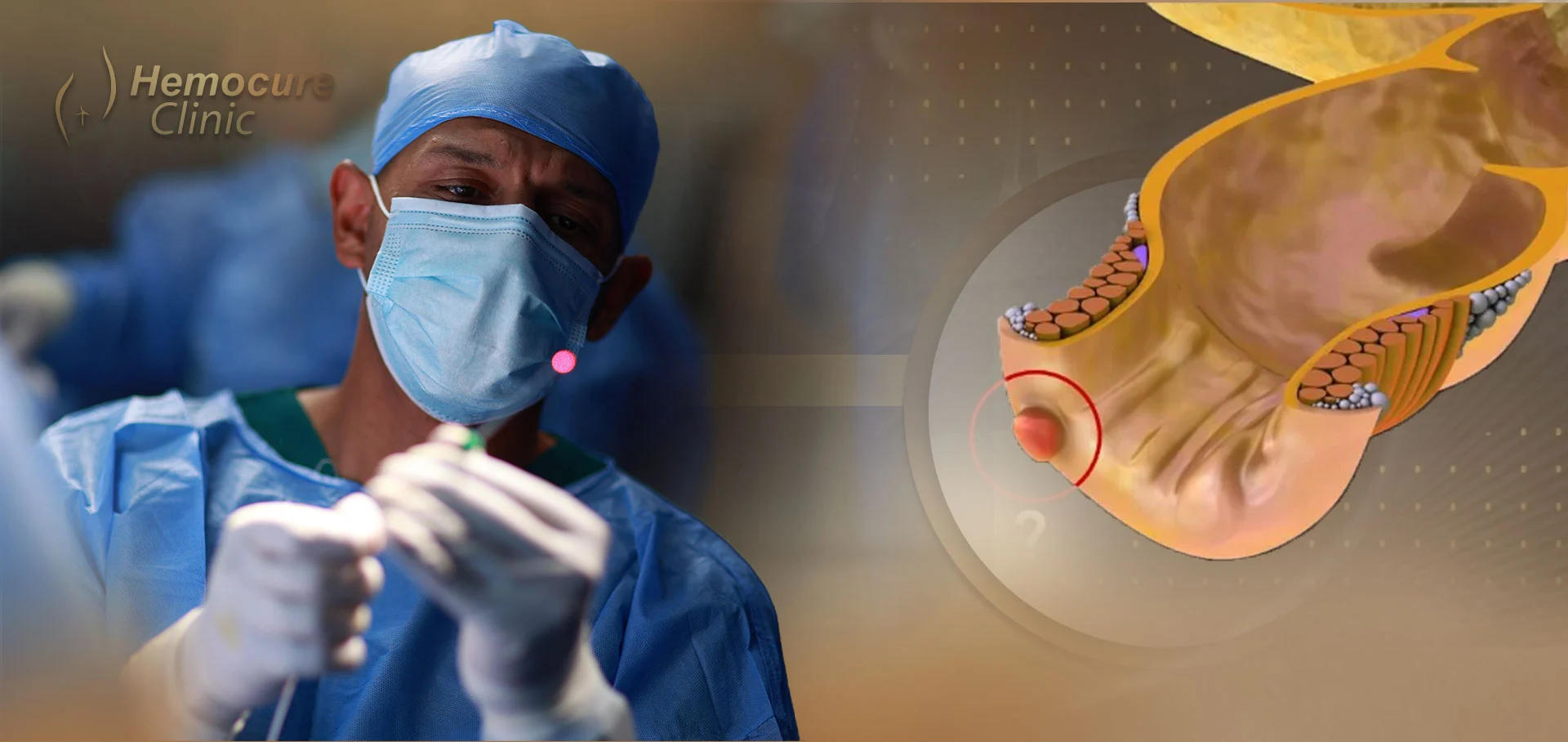Are Hemorrhoids Dangerous? And When Should You See a Doctor?

Introduction:
Hemorrhoids are a common health issue that many people suffer from at different stages of their lives. However, it's often an embarrassing topic that people find difficult to discuss or ask about. Unfortunately, this often leads to delayed treatment and the emergence of complications that could have been avoided with early intervention.
In this article, we'll simply explain what hemorrhoids are, when they can be dangerous, and when you absolutely need to see a doctor. We'll also provide you with prevention and treatment methods you can start with to find relief.
What are Hemorrhoids?
Hemorrhoids are swollen blood vessels in the rectal or anal area. When pressure is exerted on these veins, whether due to chronic constipation or straining during bowel movements, they swell and cause bothersome symptoms like pain, bleeding, or itching.
Many people think they're rare or very dangerous, but the truth is they're a very common condition that can be easily treated if diagnosed early.
Types of Hemorrhoids:
Hemorrhoids are divided into two main types:
- Internal Hemorrhoids: Located inside the rectum, they are usually painless but can cause bleeding during bowel movements.
- External Hemorrhoids: Located around the anal opening, they can be very painful, especially if a blood clot forms within them.
In some cases, a patient may suffer from both types, which requires a precise evaluation to determine the appropriate treatment method.
Are Hemorrhoids Dangerous?
The question on many people's minds is: Are hemorrhoids a dangerous condition?
The simple answer: Not always.
Generally, hemorrhoids are not a dangerous condition and can be easily treated. However, ignoring symptoms for long periods or relying on ineffective home remedies can turn a simple case into a chronic one, leading to complications such as:
- Chronic bleeding causing anemia.
- Severe pain hindering movement and sitting.
- Blood clots in external hemorrhoids.
- Inflammation in the anal area.
- Formation of an anal fistula or chronic fissure.
So, the problem isn't with hemorrhoids themselves, but with delaying treatment or mishandling them.
When Should You See a Doctor?
There are certain signs you need to take seriously. If they appear, you must see a specialist doctor immediately:
- Repeated bleeding during bowel movements.
- Persistent or severe pain in the anal area.
- Swelling or the appearance of a lump at the anal opening.
- Unusual discharge.
- A feeling of incomplete evacuation after using the restroom.
- If symptoms persist for more than two weeks without improvement.
It's also very important to see a doctor if these symptoms appear in someone over the age of 50, as they can mimic symptoms of other, more serious conditions like colon tumors.
Ways to Prevent Hemorrhoids:
Prevention is always better than cure. Here are simple steps that can protect you from developing hemorrhoids or prevent their recurrence:
- Drink plenty of water throughout the day.
- Eat plenty of fiber (vegetables, fruits, oats...).
- Avoid constipation; use laxatives if necessary under medical supervision.
- Don't sit on the toilet for too long.
- Stay active and exercise regularly.
- Reduce spicy foods and excessive spices.
Available Treatment Methods:
Treatment varies depending on the case and is usually divided into stages:
- Medication: In simple cases, creams or suppositories can be used to reduce pain and inflammation.
- Non-surgical intervention: Such as rubber band ligation or injections, these are performed in the clinic without surgery.
- Laser treatment: The latest and best method for advanced hemorrhoid cases. Its advantages are that it's surgery-free, almost painless, and the patient goes home on the same day.
- Traditional surgery: This is the last resort in very severe cases where other methods have failed.
At a center like Hemocure, treatment is performed using the latest laser technologies, providing the patient with comfort, safety, and quick recovery.
Summary:
Hemorrhoids are not always a serious condition, but they can become a source of real pain and suffering if symptoms are ignored or treatment is delayed. It's crucial to pay attention to any warning signs like bleeding or chronic pain and see a doctor immediately for a correct diagnosis. Prevention starts with a healthy lifestyle, and modern treatment today – especially with laser techniques – offers effective and safe solutions without the need for surgery. Take care of your health and don't postpone medical consultation if you experience any symptoms, as early intervention is key.
 English
English
 العربية
العربية

Add New Comment